Best movies & TV Shows like Studio One
A wide range of memorable dramas during the Golden Age of Television.
A unique, carefully handpicked, selection of the best movies like Studio One . If you liked Studio One then you may also like: The Animatrix, Ace Ventura: Pet Detective, Alfred Hitchcock Presents, The Barbara Stanwyck Show, Climax! and many more popular movies featured on this list. You can further filter the list even more or get a random selection from the list of similar movies, to make your selection even easier.
An American radio–television anthology series, created in 1947 by Canadian director Fletcher Markle, who came to CBS from the CBC. Studio One, presented by Westinghouse, was one of the first of the anthology TV programs. The episodes were often abridged remakes of movies from years gone by and many future well-known television and movie actors appeared in the productions.
Studio One
You may filter the list of movies on this page for a more refined, personalized selection of movies.
Still not sure what to watch click the recommend buttun below to get a movie recommendation selected from all the movies on this list
Ace Ventura: Pet Detective
Ace Ventura: Pet Detective is an animated television series based on the film of the same name. The series was produced by Morgan Creek Productions and Nelvana for Warner Bros. Studios. It aired for two seasons from 1995 to 1997 on CBS. A third season and reruns of previous episodes aired on Nickelodeon from 1999 to 2000.
Alfred Hitchcock Presents
A television anthology series hosted by Alfred Hitchcock featuring dramas, thrillers, and mysteries.
The Barbara Stanwyck Show
The Barbara Stanwyck Show is an American anthology drama television series which ran on NBC from September 1960 to September 1961. Barbara Stanwyck served as hostess, and starred in all but four of the half-hour productions. The four she did not star in were actually pilot episodes of potential series programs which never materialized. Stanwyck won the Emmy Award in 1961 for Outstanding Performance by an Actress in a Series. Three of the shows in which Stanwyck starred were an attempt at spinning off a dramatic series of her own, in which she appeared as "Josephine Little", an American woman running an import-export shop in Hong Kong. The series, produced at Desilu Studios, was directed by Stuart Rosenberg. The Barbara Stanwyck Show lasted one season. It aired at 10 p.m. Eastern on Mondays opposite Jackie Cooper's military sitcom Hennesey on CBS and the second half of Gardner McKay's Adventures in Paradise on ABC.
Climax!
Climax! is an American anthology series that aired on CBS from 1954 to 1958. The series was hosted by William Lundigan and later co-hosted by Mary Costa. It was one of the few CBS programs of that era to be broadcast in color. Many of the episodes were performed and broadcast live.
General Electric Theater
General Electric Theater is an American anthology series hosted by Ronald Reagan that was broadcast on CBS radio and television. The series was sponsored by General Electric's Department of Public Relations.
George of the Jungle
George of the Jungle is an American animated series produced by Jay Ward and Bill Scott, who created The Rocky and Bullwinkle Show. The character George was inspired by the legend of Tarzan. It ran for 17 episodes on Saturday mornings from September 9 to December 30, 1967, on the American TV network ABC. The half-hour program was distributed for many years by Worldvision Enterprises, currently part of CBS Television Distribution. Each Full Episode was a compilation of 3 mini episodes from 3 different shows: George of the Jungle; Tom Slick; Super Chicken -Each voiced by the same actors.
Howdy Doody
Howdy Doody is an American children's television program that was created and produced by E. Roger Muir and telecast on the NBC network in the United States from December 27, 1947 until September 24, 1960. It was a pioneer in children's television programming and set the pattern for many similar shows. One of the first television series produced at NBC in Rockefeller Center, in Studio 3A, it was also a pioneer in early color production as NBC used the show in part to sell color television sets in the 1950s.
Key & Peele
Key & Peele is an American sketch comedy television show. It stars Keegan-Michael Key and Jordan Peele, both former cast members of MADtv. Each episode of the show consists of several pre-taped sketches starring the two actors, introduced by Key and Peele in front of a live studio audience.
The Late Late Show with Craig Ferguson
The Late Late Show with Craig Ferguson is an American late-night talk show hosted by Scottish American comedian Craig Ferguson, who is the third regular host of the Late Late Show franchise. It follows Late Show with David Letterman in the CBS late-night lineup, airing weekdays in the US at 12:37 a.m. It is taped in front of a live studio audience from Monday to Friday at CBS Television City in Los Angeles, California, directly above the Bob Barker Studio. It is produced by David Letterman's production company Worldwide Pants Incorporated and CBS Television Studios. Since becoming host on January 3, 2005, after Craig Kilborn and Tom Snyder, Ferguson has achieved the highest ratings since the show's inception in 1995. While the majority of the episodes focus on comedy, Ferguson has also addressed difficult subject matter, such as the deaths of his parents, and undertaken serious interviews, such as one with Desmond Tutu, which earned the show a 2009 Peabody Award.
Late Show with David Letterman
Late Show with David Letterman is an American late-night talk show hosted by David Letterman on CBS. The show debuted on August 30, 1993, and is produced by Letterman's production company, Worldwide Pants Incorporated and CBS Television Studios. The show's music director and band-leader of the house band, the CBS Orchestra, is Paul Shaffer. The head writer is Matt Roberts and the announcer is Alan Kalter. Of the major U.S. late-night programs, Late Show ranks second in cumulative average viewers over time and third in number of episodes over time. The show leads other late night shows in ad revenue with $271 million in 2009. In most U.S. markets the show airs at 11:35 p.m. Eastern/Pacific time, but is recorded Monday through Wednesday at 4:30 p.m., and Thursdays at 3:30 p.m and 6:00 p.m. The second Thursday episode usually airs on Friday of that week. In 2002, Late Show with David Letterman was ranked No. 7 on TV Guide's 50 Greatest TV Shows of All Time. CBS has a contract with Worldwide Pants to continue the show through 2014; by then, Letterman will surpass Johnny Carson as the longest tenured late-night talk show host.
The Lucy–Desi Comedy Hour
The Lucy–Desi Comedy Hour is a collection of thirteen one-hour specials airing occasionally from 1957 to 1960, and originally served as part of Westinghouse Desilu Playhouse. Its original network title was The Ford Lucille Ball-Desi Arnaz Show for the first season, and The Westinghouse Desilu Playhouse Presents The Lucille Ball-Desi Arnaz Show for the following seasons. It was the successor to the classic comedy, I Love Lucy, and featured the same major cast members. The production schedule avoided the grind of a regular weekly series. Desilu produced the show, which was mostly filmed at their Los Angeles studios with occasional on-location shoots at Lake Arrowhead, Las Vegas and Sun Valley, Idaho. CBS reran the show under the "Lucy-Desi" title during the summers of 1962-1967, after which it went into syndication.
Max Headroom
Max Headroom is a British-produced American satirical science fiction television series by Chrysalis Visual Programming and Lakeside Productions for Lorimar-Telepictures that aired in the United States on ABC from March 1987 to May 1988. The series was based on the Channel 4 British TV pilot produced by Chrysalis, Max Headroom: 20 Minutes into the Future. The series is often mistaken as an American-produced show due to the setting and its use of an almost entirely US cast along with being broadcast in the USA on the ABC network. Cinemax aired the UK pilot followed by a six-week run of highlights from The Max Headroom Show, a music video show where Headroom appears between music videos. ABC took an interest in the pilot and asked Chrysalis/Lakeside to produce the series for US audiences. The show went into production in late 1986 and ran for six episodes in the first season with eight being produced in season two.
Monsters
Monsters is a syndicated horror anthology series which originally ran from 1988 to 1991 and reran on the Sci-Fi Channel during the 1990s. As of 2011, Monsters airs on NBC Universal's horror/suspense-themed cable channel Chiller in sporadic weekday marathons. In a similar vein to Tales from the Darkside, Monsters shared the same producer, and in some ways succeeded the show. It differed in some respects nonetheless. While Tales sometimes dabbled in stories of science fiction and fantasy, this series was more strictly horror. As the name implies, each episode of Monsters featured a different monster which the story concerned, from the animatronic puppet of a fictional children's television program to mutated, weapon-wielding lab rats. Similar to Tales, however, the stories in Monsters were rarely very straightforward action plots and often contained some ironic twist in which a character's conceit or greed would do him in, often with gruesome results. Adding to this was a sense of comedy often lost on horror productions which might in some instances lighten the audience's mood but in many cases added to the overall eeriness of the production.
Variety Studio: Actors on Actors
PBS SoCal and Variety take you inside the biggest movies and T.V. shows of the past year through candid conversations with today's hottest actors. Hosted by Variety Film Awards Editor Clayton Davis and Variety Chief Correspondent Elizabeth Wagmeister, each episode brings together pairs of actors engaging in intimate one-on-one discussions about their craft and work.
You Bet Your Life
You Bet Your Life is an American quiz show that aired on both radio and television. The original and best-known version was hosted by Groucho Marx of the Marx Brothers, with announcer and assistant George Fenneman. The show debuted on ABC Radio in October 1947, then moved to CBS Radio in September 1949 before making the transition to NBC-TV in October 1950. Because of its simple format, it was possible to broadcast the show simultaneously on the radio and on television. In 1960, the show was renamed The Groucho Show and ran a further year. Most episodes are in the public domain. The play of the game, however, was secondary to the interplay between Groucho, the contestants, and occasionally Fenneman. The program was rerun into the 1970s, and later in syndication as The Best of Groucho. As such, it was the first game show to have its reruns syndicated.
You Can't Do That on Television
You Can't Do That on Television is a Canadian television program that first aired locally in 1979 before airing internationally in 1981. It featured pre-teen and teenaged actors in a sketch comedy format. Each episode had a theme. The show was notable for launching the careers of many performers, including Alanis Morissette, and writer Bill Prady, who would write and produce shows like The Big Bang Theory, Gilmore Girls and Dharma and Greg. The show was produced by and aired on Ottawa's CTV station CJOH-TV. After production ended in 1990, the show continued in reruns on Nickelodeon through 1994, when it was replaced with the similar All That. The show is synonymous with Nick, and was at that time extremely popular, with the highest ratings overall on the channel. The show is also well known for introducing the network's iconic slime. The program is the subject of the 2004 feature-length documentary, You Can't Do That on Film, directed by David Dillehunt.
The Dick Powell Show
The Dick Powell Show is an American anthology series that ran on NBC from 1961- 1963, primarily sponsored by the Reynolds Metals Company. It was hosted by longtime film star Dick Powell until his death from lymphatic cancer on January 2, 1963, then by a series of guest hosts until the series ended. The first of these was Gregory Peck, who began the January 8 program with a tribute to Powell, recognizing him as "a great and good friend to our industry." Peck was followed by fellow actors such as Robert Mitchum, Frank Sinatra, Glenn Ford, Charles Boyer, Jackie Cooper, Rock Hudson, Milton Berle, Jack Lemmon, Dean Martin, Robert Taylor, Steve McQueen, David Niven, Danny Thomas, Robert Wagner and John Wayne.
Benji, Zax & the Alien Prince
Benji, Zax & the Alien Prince is a live-action Hanna-Barbera and Mulberry Square children's science fiction television series created by Joe Camp, the creator of the Benji film franchise. The series aired Saturday mornings on CBS in 1983 with repeats airing in the United States and internationally for a number of years through the 1980s. The series was taped in various parts of the Dallas–Fort Worth Metroplex, with interiors taped at the Las Colinas studios in Irving, Texas. The entire series was released to DVD by GoodTimes Home Video as four separate releases of 3 or 4 episodes each and a single release with all 13 episodes.
Payne
Payne is an American television series, patterned after the British program Fawlty Towers. It starred American actor John Larroquette, who portrayed assistant district attorney Dan Fielding on the American television program Night Court. Larroquette was also an executive producer for the series. Payne was a mid-season replacement on CBS and aired in March and April 1999. The show also starred JoBeth Williams, Julie Benz and Rick Batalla. Despite fairly positive reception, and receiving the blessing of John Cleese, who agreed to take a recurring role if the show was renewed, Payne was quickly cancelled. Nine episodes were filmed; eight were aired. The show is not available on DVD.
Icons
Icons was a documentary TV show on G4 that originally focused on significant people, companies, products, history, and milestones in world of video games. It was relaunched in 2006 and focused entirely on pop culture. It was cancelled soon afterwards. On May 10, 2006, it was announced that Icons was relaunching on June 3 with an episode focusing on J.J. Abrams. The show will feature a broader scope on things and people "men 18–34 care about, admire and emulate." Future episodes would focus on Marc Ecko, The Onion, and Family Guy. This change in format had been suspected, due to the recent episodes about George A. Romero, Frank Miller and the history of the King Kong franchise. The classic video game themed episodes continued to air on the network sporadically until 2008, under the new name of Game Makers.
On the Air
The year is 1957. The cast and crew of the Lester Guy Show are extremely apprehensive about their upcoming live television broadcast on the Zoblotnick Broadcasting Co. network. Lester Guy despises fellow cast member Betty Hudson for unknowingly becoming more popular than him and schemes to destroy her career. Only two of the seven episodes were written by David Lynch.
Biography
Biography is a documentary television series. It was originally a half-hour filmed series produced for CBS by David Wolper from 1961 to 1964 and hosted by Mike Wallace. The A&E Network later re-ran it and has produced new episodes since 1987. The older version featured historical figures such as Helen Keller and Mark Twain, or long-dead entertainment figures such as Will Rogers or John Barrymore. The A&E series has placed the emphasis on such people as Marilyn Monroe, Elvis Presley, Plácido Domingo, Freddie Mercury, Jacqueline Kennedy Onassis, Eric Clapton, Pope John Paul II, Gene Tierney, Selena, Diego Rivera, Mao Zedong and Queen Elizabeth II, and fictional characters like The Phantom, Superman, Hamlet, Betty Boop, and Santa Claus. The program ended up profiling enough figures that in 1999, A&E spun it off into an entire network, The Biography Channel.
Hong Kong
Hong Kong is a 26-episode adventure/drama series which aired on ABC television during the 1960–1961 season and helped to catapult Australian actor Rod Taylor into a major film star, primarily in the 1960s, beginning with his role in Alfred Hitchcock's The Birds. The series was a production of 20th Century Fox Television, and the final credit of each episode stated: "Filmed by Twentieth Century Fox Television Inc. at its Hollywood studios and in the Crown Colony of Hong Kong".
The Goldbergs
The Goldbergs is a comedy-drama broadcast from 1929 to 1946 on American radio, and from 1949 to 1956 on American television. It was adapted into a 1948 play, Me and Molly, a 1950 film The Goldbergs, and a 1973 Broadway musical, Molly.
Goodyear Television Playhouse
The Goodyear Television Playhouse is an American anthology series that was telecast live on NBC from 1951 to 1957 during the "Golden Age of Television". Sponsored by Goodyear, Goodyear alternated sponsorship with Philco, and the Philco Television Playhouse was seen on alternate weeks. In 1955, the title was shortened to The Goodyear Playhouse and it aired on alternate weeks with The Alcoa Hour. The three series were essentially the same, with the only real difference being the name of the sponsor. Producer Fred Coe nurtured and encouraged a group of young, mostly unknown writers that included Robert Alan Aurthur, George Baxt, Paddy Chayefsky, Horton Foote, Howard Richardson, Tad Mosel and Gore Vidal. Notable productions included Chayefsky's Marty starring Rod Steiger, Chayefsky's The Bachelor Party, Vidal's Visit to a Small Planet, Richardson's Ark of Safety and Foote's The Trip to Bountiful. From 1957 to 1960, it became a taped, half-hour series titled Goodyear Theater, seen on Mondays at 9:30pm.
Land and Sea
Land and Sea is a locally produced Canadian documentary television show broadcast in Newfoundland and Labrador on CBNT-DT in St. John's, and on all CBC Television outlets throughout the province. It has been on the air since 1964; originally a black-and-white program, it began broadcasting in colour in the late '60s/early '70s. There is also a Maritime version of Land and Sea which is broadcast on the full CBC network on Sunday afternoons, and episodes from that version are often alternated with Newfoundland-based episodes.
The Hunger
The Hunger is a British/Canadian television horror anthology series, co-produced by Scott Free Productions, Telescene Film Group Productions and the Canadian pay-TV channel The Movie Network. Though it shares a title with the feature film The Hunger the series has no direct plot or character connection to the film, and was created by Jeff Fazio. Originally shown on the Sci Fi Channel in the UK, The Movie Network in Canada and Showtime in the US, the series was broadcast from 1997 to 2000, and is internally organized into two seasons. Each episode was based around an independent story introduced by the host; Terence Stamp hosted each episode for the first season, and was replaced in the second season by David Bowie. Stories tended to focus on themes of self-destructive desire and obsession, with a strong component of soft-core erotica; popular tropes for the stories included cannibalism, vampires, sex, and poison.
Gigglebiz
Gigglebiz is a children's television programme made in the UK. There have been two series, first broadcast on CBeebies, the BBC's younger children's channel, in 2009 and 2011. The programme's star and creator is Justin Fletcher, who plays the chief characters in all the comic sketches. Some sketches are filmed in the studio; one regular external location is Portmeirion, used for the town of Wiggyville where the Captain Adorable sketches are set. The sketches are interspersed with 'Giggle Box' - film segments of children viewers telling Justin jokes. The first series was broadcast in September 2009 and comprised 25 15-minute episodes. The second series of 15 episodes was shown in January 2011. The new series saw some characters disappear to make way for new ones.
Lights Out
Lights Out was an extremely popular American old-time radio program, an early example of a network series devoted mostly to horror and the supernatural, predating Suspense and Inner Sanctum. Versions of Lights Out aired on different networks, at various times, from January 1934 to the summer of 1947 and the series eventually made the transition to television. In 1946, NBC Television brought Lights Out to TV in a series of four specials, broadcast live and produced by Fred Coe, who also contributed three of the scripts. NBC asked Cooper to write the script for the premiere, "First Person Singular", which is told entirely from the point of view of an unseen murderer who kills his obnoxious wife and winds up being executed. Variety gave this first episode a rave review ("undoubtedly one of the best dramatic shows yet seen on a television screen"), but Lights Out did not become a regular NBC-TV series until 1949.
Orson Welles' Sketch Book
Orson Welles' Sketch Book is a series of six short television commentaries by Orson Welles for the BBC in 1955. Written and directed by Welles, the 15-minute episodes present the filmmaker's commentaries on a range of subjects. Welles frequently draws from his own experiences and often illustrates the episodes with his own sketches.
Dex Hamilton: Alien Entomologist
Dex Hamilton: Alien Entomologist is a children's animated television program that is an international co-production between March Entertainment and SLR Productions in Canada and Australia. The series first screened on Network Ten in 2008 and is designed for kids aged 6 and older. It began airing on CBC Television in Canada in January 2010 and currently airs on Saturday mornings. qubo airs the series in the USA. There are 26 episodes of 25 minutes duration each. Episodes are usually screened in a half-hour timeslot.
Nanalan'
Nanalan' is a Canadian television show broadcast by CBC Television in Canada and by PBS in the US, created by The Grogs. Its target audience is preschool kids and Nanalan' is "designed to foster children's curiosity and love of learning, with the hope they will carry it with them as they grow". Excerpts from the show also air on Fox Kids UK. Nanalan also aired on Nick Jr. as short episodes in between shows. Nanalan' began airing in 1999. In 2004, it was nominated for the following three Gemini Awards: Best Performance in a Pre-School Program or Series; Best Writing in a Children's or Youth Program or Series; and Best Pre-School Program or Series. Nanalan' won Best writing and Best performance, an award shared by Jamie Shannon, Jason Hopley, Marty Stelnick, Todd Doldersum, and Ali Eisner. Several compilation DVDs of the show and a CD of musical highlights are also available.
The Mouse Factory
The Mouse Factory is an American syndicated television series produced by Walt Disney Productions and created by Ward Kimball, that ran from 1972 to 1974. It showed clips from various Disney cartoons and movies, hosted by celebrity guests, including Johnny Brown, Charles Nelson Reilly, JoAnne Worley and many more, visiting the Disney studio and interacting with the walk-around Disney characters from the Disney Theme Parks. It was later re-run on the Disney Channel in the 1980s and '90s. The theme played over the previews of each episode was a fast instrumental version of "Whistle While You Work" from Snow White and the Seven Dwarfs. The song played over the end credits is "Minnie's Yoo Hoo", the theme song from the original Mickey Mouse Clubs that met in theaters starting in 1929. However, due to low ratings, the series was canceled after its second season.
Your Jeweler's Showcase
Your Jeweler's Showcase is an American television anthology drama series. At least 21 episodes aired on CBS from November 11, 1952 to August 30, 1953. From January 6, 1953 to May 26, 1953 it alternated weekly with Demi-Tasse Tales.
The Morey Amsterdam Show
The Morey Amsterdam Show is an American sitcom which ran from 1948-1949 on CBS Television and 1949-1950 on the DuMont Television Network, for a total of 71 episodes.
Meet McGraw
Meet McGraw is an American dramatic television series starring Frank Lovejoy in the role of the hard-hitting detective McGraw, a man specifically given no first name in the program. Forty-one half-hour episodes aired on NBC during the 1957-1958 season, sponsored by Procter & Gamble. The series was produced by the Desilu Studios, most of whose productions were broadcast by CBS. The theme song for the series is "One For My Baby" by Harold Arlen and Johnny Mercer. Meet McGraw preceded The Bob Cummings Show on Tuesday evenings on NBC. It aired at 9:00pm ET/PT opposite John Lupton’s Western series, Broken Arrow on ABC and Bud Collyer's To Tell the Truth quiz show on CBS. After its cancellation, Meet McGraw was repeated as The Adventures of McGraw on ABC in 1958-1959, but not in prime time. A number of episodes of the series, including "Mohave" and "Lady in Limbo," are available on DVD.
NBC Experiment in Television
An attempt by NBC to emulate the success of the CBS hit The Twilight Zone, this hour-long anthology series showcased different actors, stories and creative talent each week.
Turning Point
Turning Point is an ABC News program that aired from 1994 to 1999. Turning Point was an hour-long documentary program focused on a single topic, making it similar to CBS' 48 Hours, which it ran directly opposite for some of its run. The program tended toward sensational topics, such as former members of Charles Manson's "Family" and much coverage of the O. J. Simpson murder case, which was current for much of the program's run. ABC News figures appearing regularly on the program included Diane Sawyer, Forrest Sawyer, Meredith Vieira, Peter Jennings and Barbara Walters. This Turning Point is not to be confused with an ABC dramatic anthology series of the same title which ran during the 1952-53 television season.
Walt Disney Animation Studios: Short Circuit Experimental Films
If you could tell any story with the team of talented artists at Walt Disney Animation Studios, what would you create? Welcome to Short Circuit, an experimental, innovative program where anyone at the Studio can pitch an idea and get selected to create their own short film.
Unprecedented
Series written and filmed in lockdown that responds to the radical way we have seen our world change during the coronavirus pandemic, featuring the UK’s most celebrated actors.
Oats Studios
Director Neill Blomkamp produces a series of experimental short films that envision post-apocalyptic worlds and nightmarish scenarios.
Public Prosecutor
Public Prosecutor is a 26-episodes American television series produced in 1947–1948, and first aired in 1951.
Circuit Breakers
Curiosity leads to chaos when students in the near future experience mysterious events.
Tuning In: Fifty Years on the CBC
Taking a deliberately post-modern approach to the CBC and Canadian culture, the series raids the bulging vaults of the national broadcaster. Viewers will see images of Canada’s past five decades, ranging from the long-running celebrity quiz show Front Page Challenge through ’70s pop star Rene Simard to stirring footage of legendary hockey icons. Deliberately using a stylistic melange, the series will use contemporary footage shot in Betacam video and Super 8 with old kinescopes from the ’50s, black-and-white footage of the ’60s and the more standard color format from the ’70s through the ’90s.
Street Cents
"Street Cents," a teen-centered newsmagazine aired on CBC Television from 1989 to 2006, stood out for its focus on consumer and media awareness for young viewers. Created by producer John Nowlan and inspired by Britain's "Pocket Money," the series garnered critical acclaim, winning Gemini Awards and an International Emmy for Best Youth Programming. Ad-free like CBC's Marketplace, it prioritized unbiased critique of products and services, promoting safety, ethics, and youth empowerment. Despite its lauded inclusivity, the show ended in October 2006 due to declining teen viewership, leaving CBC-TV without youth-targeted programming.
Butternut Square
Butternut Square was a Canadian children's television series which aired on CBC Television between October 19, 1964 and February 10, 1967. The cast featured Ernie Coombs as Mr. Dressup and Fred Rogers as Mister Rogers, both of whom would follow with their own landmark television series. "Butternut Square" was a show designed for young viewers and featured a variety of segments aimed at entertaining and educating children. The program included storytelling, music, puppetry, and educational segments, often focusing on imaginative play and interactive elements to engage its audience. The show aimed to stimulate creativity, encourage learning, and entertain children through a mix of fun activities and storytelling. Although specific details about individual episodes might vary, the overall emphasis was on fostering a sense of wonder, creativity, and learning in its young viewers.


















































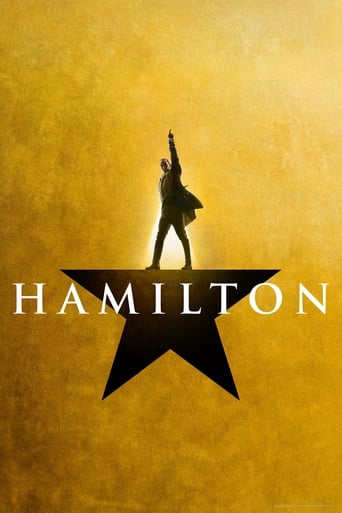
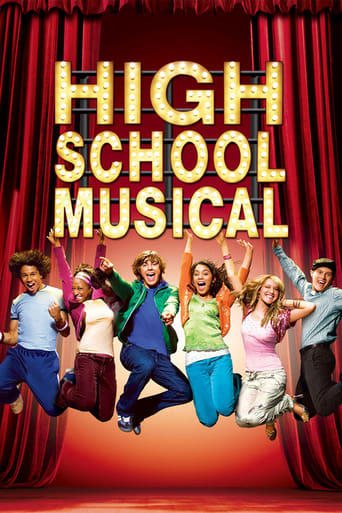
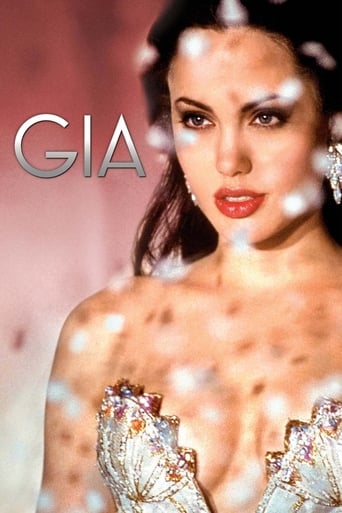
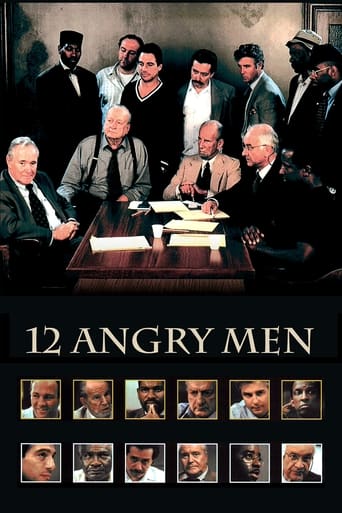
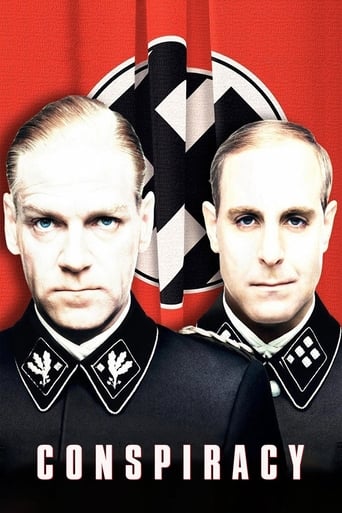

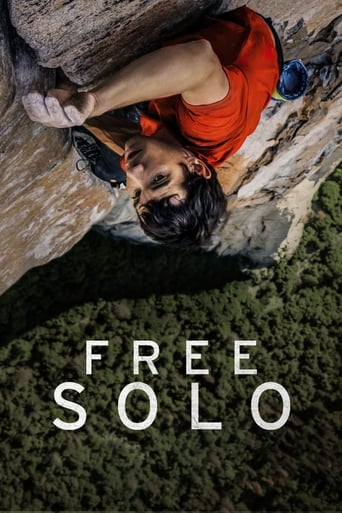

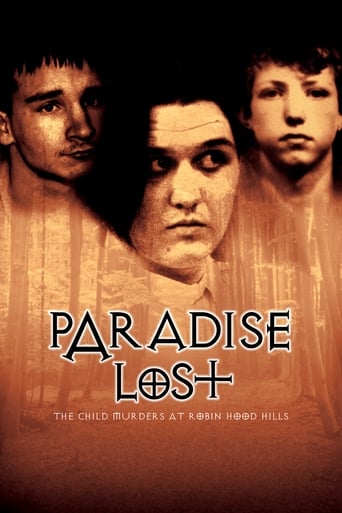
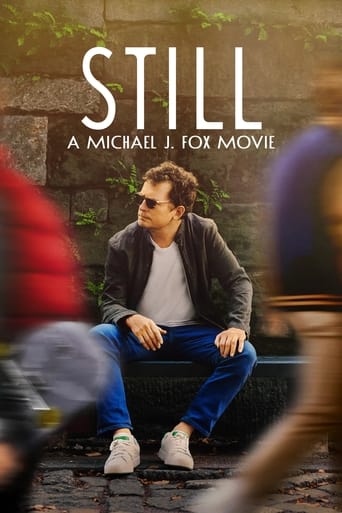
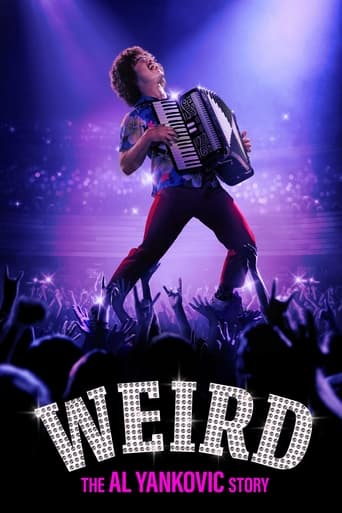


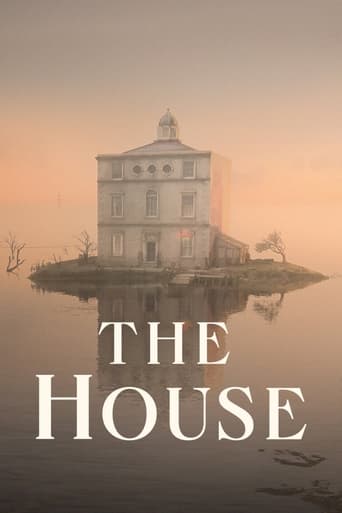
The Animatrix
Straight from the creators of the groundbreaking Matrix trilogy, this collection of short animated films from the world's leading anime directors fuses computer graphics and Japanese anime to provide the background of the Matrix universe and the conflict between man and machines. The shorts include Final Flight of the Osiris, The Second Renaissance, Kid's Story, Program, World Record, Beyond, A Detective Story and Matriculated.